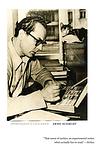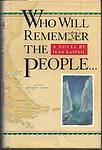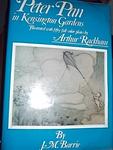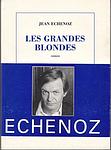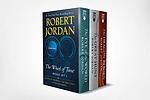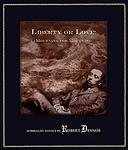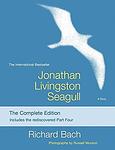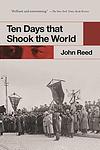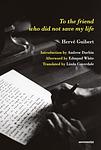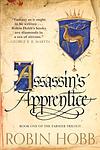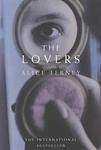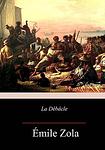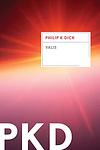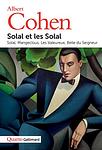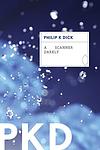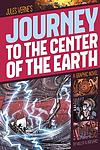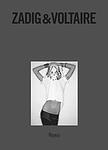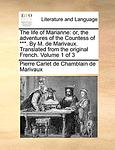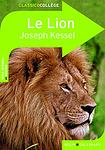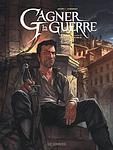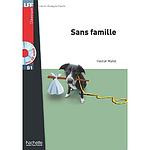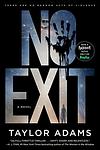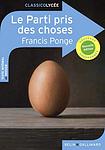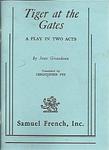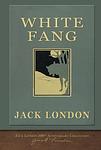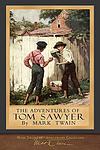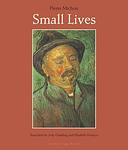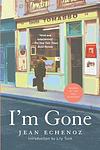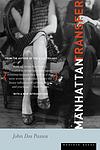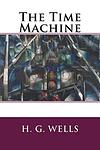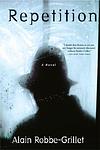The 500 best books of all time from Culture Café users
This is one of the 300 lists we use to generate our main The Greatest Books list.
-
Gypsy Ballads by Federico García Lorca
"Gypsy Ballads" is a collection of poems that depict the lives, struggles, and customs of the Andalusian Gypsy community. The poems are rich in imagery and symbolism, exploring themes of love, death, passion, and tragedy. With its vivid portrayal of the Gypsy culture, the book provides a unique insight into their vibrant and complex world, while also reflecting on broader human experiences.
The 679th Greatest Book of All Time -
The Sheltering Sky by Paul Bowles
"The Sheltering Sky" is a novel about an American couple, Port and Kit Moresby, who travel to the North African desert accompanied by their friend Tunner. The journey, initially an attempt to cure their marital woes, quickly descends into a harrowing journey of self-discovery and exploration of the human condition. As they move further into the desert, the harsh environment and their isolation from the outside world push them to their psychological limits, leading to devastating consequences.
The 493rd Greatest Book of All Time -
Trainspotting by Irvine Welsh
This novel is a gritty, raw portrayal of a group of heroin addicts living in Edinburgh, Scotland. The narrative is non-linear and told from multiple perspectives, providing a deep dive into the minds and lives of these characters. The story explores themes of poverty, addiction, friendship, and the struggle to escape one's circumstances, all set against the backdrop of a bleak urban landscape. It is known for its strong Scottish dialect, graphic content, and dark humor.
The 1099th Greatest Book of All Time -
Scenes From The Life Of A Faun by Arno Schmidt
"Scenes from the Life of a Faun" is a complex and experimental novel that delves into the psyche of a German civil servant living in the aftermath of World War II. The protagonist, burdened by the guilt and trauma of the war, retreats into a fantasy world where he imagines himself as a mythological faun. Through a fragmented narrative structure and a dense web of literary and historical references, the book explores themes of memory, responsibility, and the struggle to find meaning in a shattered world. The protagonist's internal journey is a reflection on the moral ambiguities of his time, as he grapples with his complicity in the horrors of the past while seeking redemption in his personal mythology.
The 1856th Greatest Book of All Time -
Who Will Remember The People... by Jean Raspail
"Who Will Remember The People..." is a poignant narrative that delves into the history and demise of a fictional South American indigenous tribe. The book explores the themes of cultural extinction, colonialism, and the inevitable march of modernity as it tells the story of the last members of this tribe, their struggles to preserve their way of life, their memories, and their identity in the face of external pressures and internal decay. Through its evocative prose, the novel serves as a meditation on the loss of ancient traditions and the often-unseen human cost of progress.
The 6148th Greatest Book of All Time -
Peter Pan by J. M. Barrie
This classic children's novel is about a boy named Peter Pan who never grows up and lives in a magical place called Neverland. Peter Pan, along with his fairy sidekick Tinker Bell, invites the Darling children - Wendy, John, and Michael - to Neverland where they encounter pirates, mermaids, and other fantastic adventures. The story explores themes of innocence, friendship, bravery, and the bittersweet nature of growing up.
The 524th Greatest Book of All Time -
Nuptials by Albert Camus
"Nuptials" is a lyrical essay collection that delves into the author's profound reflections on the Mediterranean landscape and the joy of living. Through vivid and evocative prose, the essays explore the author's sensory experiences and emotional responses to the sun, sea, and nature of Algiers and its surroundings. The work celebrates the physical beauty of the world, the intense pleasures of the body, and the connection between the individual and the natural environment, all while contemplating the themes of existence, happiness, and mortality. The author's meditations on the simple yet profound aspects of life offer a philosophical perspective on the human condition and the search for meaning within the splendor of the natural world.
The 5241st Greatest Book of All Time -
L'huile Sur Le Feu by Hervé Bazin
"L'huile Sur Le Feu" is a French novel that delves into the complexities of family dynamics and generational conflict. The narrative centers around a bourgeois family whose members are embroiled in a series of misunderstandings and disputes. The protagonist, a young man, finds himself at odds with his conservative parents, whose values and expectations clash with his own desires and aspirations. As tensions rise, the family's interactions become increasingly volatile, resembling a pot of oil on fire, ready to ignite at the slightest provocation. The novel explores themes of rebellion, tradition, and the search for individual identity within the constraints of familial obligations.
The 5242nd Greatest Book of All Time -
Leviathan by Paul Auster
In this metaphysical detective story, the protagonist's journey unfolds through a series of unexpected events that begin with a mysterious explosion on a highway. The narrative weaves through the protagonist's relationships and encounters, exploring themes of identity, chance, and the complexities of human connection. As the protagonist delves into the life of a friend who may be connected to the explosion, the story examines the political and personal motives that drive individuals to extreme actions. The novel is a contemplation on the nature of fate and the search for meaning in a seemingly random and chaotic world.
The 3598th Greatest Book of All Time -
Big Blondes by Jean Echenoz
"Big Blondes" is a satirical novel that delves into the frenzied pursuit of a reclusive former pop star, Gloria Stella. After deciding to vanish from the public eye, Gloria becomes the target of a relentless documentary filmmaker determined to track her down for a career-defining exposé. The narrative unfolds as a humorous and thrilling chase across various countries, weaving through absurd situations and eccentric characters. The novel critiques celebrity culture and the media's obsessive fascination with public figures, all delivered with sharp wit and a playful tone.
The 6689th Greatest Book of All Time -
The Erasers by Alain Robbe-Grillet
The book is a complex and innovative narrative that blurs the lines between reality and imagination, following a detective who is investigating a series of connected murders in a nameless town. As the detective delves deeper into the case, the story unfolds in a non-linear fashion, challenging the reader's perception of time and causality. The novel's structure, characterized by repetitive descriptions and a lack of clear resolution, reflects the themes of uncertainty and the elusiveness of truth, ultimately questioning the nature of existence and the reliability of memory and perception.
The 1813th Greatest Book of All Time -
The Wind-Up Bird Chronicle by Haruki Murakami
A man's search for his wife's missing cat evolves into a surreal journey through Tokyo's underbelly, where he encounters a bizarre collection of characters with strange stories and peculiar obsessions. As he delves deeper, he finds himself entangled in a web of dreamlike scenarios, historical digressions, and metaphysical investigations. His reality becomes increasingly intertwined with the dream world as he grapples with themes of fate, identity, and the dark side of the human psyche.
The 276th Greatest Book of All Time -
In The Country Of Last Things by Paul Auster
In this dystopian novel, the protagonist navigates a decaying, unnamed city where society has collapsed, and survival hinges on scavenging through the ruins. The narrative unfolds through a series of letters she writes, detailing her desperate search for her missing brother amidst the chaos. As she encounters other inhabitants struggling to maintain a semblance of life, the city's pervasive sense of despair and the constant fight for existence challenge her resolve. The story is a poignant exploration of hope, resilience, and the human spirit in the face of overwhelming adversity.
The 2721st Greatest Book of All Time -
The Island by Robert Merle
The novel is a historical fiction set in the 18th century, following a group of mutineers who, after seizing a ship, find themselves on a deserted island. Striving to create a utopian society free from the constraints of their previous lives, the castaways establish a community with egalitarian principles. However, their attempts at an idealistic life are challenged by the complexities of human nature, power struggles, and the difficulties of survival in an isolated environment. As the narrative unfolds, the island becomes a microcosm for the broader human experience, exploring themes of freedom, governance, and morality.
The 5243rd Greatest Book of All Time -
Gulliver's Travels by Jonathan Swift
This classic satire follows the travels of a surgeon and sea captain who embarks on a series of extraordinary voyages. The protagonist first finds himself shipwrecked on an island inhabited by tiny people, later discovers a land of giants, then encounters a society of intelligent horses, and finally lands on a floating island of scientists. Through these bizarre adventures, the novel explores themes of human nature, morality, and society, offering a scathing critique of European culture and the human condition.
The 44th Greatest Book of All Time -
The Physician by Noah Gordon
The book tells the story of a young English boy, Rob Cole, in the 11th century who becomes an apprentice to a barber-surgeon. Rob's ambition to become a physician takes him across Europe and into the heart of the Muslim world, a journey fraught with danger and discovery. He disguises himself as a Jew to study at a school that does not admit Christians. The narrative is a captivating mix of history, science, and adventure, highlighting the protagonist's perseverance and the state of medical knowledge during the Middle Ages.
The 1753rd Greatest Book of All Time -
The Big Nowhere by James Ellroy
"The Big Nowhere" is a gripping crime novel set in 1950s Los Angeles, where three protagonists find themselves entangled in a web of corruption, violence, and deceit. As they navigate the dark underbelly of Hollywood and the police force, their lives become intertwined in a dangerous investigation involving murder, organized crime, and political scandal. With a relentless pace and intricate plot twists, the book explores themes of loyalty, ambition, and the blurred lines between good and evil in a city where everyone has something to hide.
The 1839th Greatest Book of All Time -
The Aleph And Other Stories by Jorge Luis Borges
This collection of short stories delves into a world of philosophical puzzles, literary references, and metaphysical intrigue. The narratives, often presented as intellectual exercises, explore themes of infinity, reality, and the nature of language and thought. The centerpiece story features a point in space that contains all other points, providing the protagonist with a vision of the entire universe. The other tales similarly challenge the reader's perception of time and identity, weaving together myth, religion, and history into a complex tapestry that defies conventional storytelling and blurs the line between the real and the imagined.
The 3025th Greatest Book of All Time -
The Book Thief by Markus Zusak
Set in Nazi Germany during World War II, the novel follows the story of a young girl who finds solace in stealing books and sharing them with others. In the midst of the horrors of war, she forms a bond with a Jewish man her foster parents are hiding in their basement. The story is narrated by Death, offering a unique perspective on the atrocities and small acts of kindness during this period. The girl's love for books becomes a metaphor for resistance against the oppressive regime.
The 549th Greatest Book of All Time -
The Eye Of The World by Robert Jordan
In a high fantasy realm woven with magic, prophecy, and conflict, a group of young villagers is thrust into an epic quest when their tranquil lives are shattered by the arrival of a mysterious stranger and a dark pursuing force. Guided by a wise and powerful mentor, they embark on a perilous journey, discovering that one among them might be the reincarnation of an ancient hero destined to confront a malevolent entity threatening the world. As they traverse diverse landscapes and face myriad dangers, they must come to terms with their own burgeoning abilities and the weight of fate upon their shoulders.
The 1819th Greatest Book of All Time -
The Case Of Dr Sachs by Martin Winckler
The book is a compelling narrative that delves into the life and practice of a compassionate and unconventional French general practitioner. Through a series of vignettes and patient encounters, the novel explores the intricacies of the doctor-patient relationship, the challenges of the medical profession, and the ethical dilemmas faced by physicians. The protagonist's approach to medicine is deeply humanistic, focusing on the individual needs of his patients rather than strictly adhering to medical protocols. His dedication to his work and the personal stories of those he treats paint a vivid portrait of a small community and the pivotal role a caring doctor plays within it.
The 6942nd Greatest Book of All Time -
La Ligne Noire by Jean-Christophe Grangé
The book is a gripping thriller that takes the reader on a dark journey through the depths of human depravity and the complexities of justice. It follows a French journalist who becomes entangled in a web of murder and mysticism as he investigates a series of gruesome killings that span from Asia to Europe. As he delves deeper into the case, he encounters a mysterious woman with a tragic past and uncovers a sinister plot that challenges his own moral boundaries. The narrative weaves together elements of crime, suspense, and psychological drama, leading to a chilling exploration of evil and the thin line that separates guilt from innocence.
The 8118th Greatest Book of All Time -
Liberty Or Love! by Robert Desnos
"Liberty or Love!" is a surrealist novel that delves into the passionate and tumultuous affair between a fugitive named Monsieur Louis Aragon and a mysterious woman known only as "the Mourning Dove." Their intense and erotic relationship unfolds in a dreamlike narrative, blending elements of fantasy and reality. The novel challenges traditional notions of love and freedom, exploring the boundaries of desire and the constraints of societal norms. The author's poetic prose and vivid imagery reflect the surrealist movement's fascination with the subconscious and the liberation of the human spirit.
The 5244th Greatest Book of All Time -
Junky by William S. Burroughs
This novel is a semi-autobiographical account of the author's life as a drug addict in the 1950s. The protagonist, living in New York City, becomes addicted to heroin and resorts to petty crime to support his habit. As he navigates the seedy underworld of drug addiction, he experiences the highs and lows of substance abuse, the desperate scramble for the next fix, and the constant threat of arrest. The book offers a stark, brutally honest portrayal of addiction and its effects on the human psyche.
The 1317th Greatest Book of All Time -
Jonathan Livingston Seagull by Richard Bach
The book tells the story of Jonathan Livingston, a seagull who is bored with the daily squabbles over food and is seized by a passion for flight. He pushes himself, learning everything he can about flying, to the point of being ostracized from his flock. He becomes an extremely high flyer, and meets other gulls who have been ostracized for not conforming. The story is about self-perfection and self-sacrifice for the sake of a higher purpose, symbolizing the pursuit of perfection in some form.
The 773rd Greatest Book of All Time -
Jerome by Jean-Pierre Martinet
"Jerome" is a dark and unsettling novella that delves into the life of its eponymous protagonist, a reclusive, grotesque, and morbidly obese librarian who lives in a decrepit apartment. His existence is one of grim routine and perverse fantasies, as he harbors an unhealthy obsession with the young daughter of his landlord. The narrative explores the depths of Jerome's alienation and psychological torment, painting a bleak portrait of a man consumed by his own depravity and the suffocating confines of his solitary world. The book is a stark examination of loneliness, despair, and the human condition, rendered with a visceral intensity that leaves a lasting impression.
The 5468th Greatest Book of All Time -
The Social Contract by Jean-Jacques Rousseau
"The Social Contract" is a philosophical work that discusses the concepts of sovereignty and the social contract. The author argues that all men are born free, but everywhere they are in chains, suggesting that society and its rules are a form of enslavement. However, he also posits that a social contract, where individuals come together to form a collective or a society, is necessary for the preservation of their freedom. This contract allows for the creation of a sovereign that is made up of the collective and expresses the general will, which is always right and tends towards the public utility.
The 531st Greatest Book of All Time -
Doctor Zhivago by Boris Pasternak
Set against the tumultuous backdrop of the Russian Revolution, the book follows the life of a physician and poet, Yuri Zhivago, as he navigates the political and social upheaval of the early 20th century. Torn between his love for two women, his wife Tonya and his passionate mistress Lara, Zhivago's personal struggles mirror the larger societal changes occurring around him. The novel explores themes of love, war, and the human spirit, offering a poignant and complex portrait of life during a time of revolutionary change.
The 129th Greatest Book of All Time -
Ten Days That Shook the World by John Reed
This book provides a firsthand account of the Russian Revolution in 1917, specifically focusing on the ten days during which the Bolsheviks seized power. The author, an American journalist, presents a detailed chronicle of the events, people, and emotions during this tumultuous period. His narrative is filled with vivid descriptions and passionate portrayals of the revolutionaries, offering an intimate look into this significant historical event.
The 1072nd Greatest Book of All Time -
Different Seasons by Stephen King
"Different Seasons" is a collection of four novellas, each with a distinct theme and season in mind, exploring the complexities of human nature and the moral challenges faced by the characters. The stories range from a tale of a prison inmate with a gift for a successful escape, to the bond between two boys who discover a shocking secret in their small town, a man falsely accused of his wife's murder and his unique path to revenge, and a coming-of-age narrative about a group of friends who set out to find the body of a missing boy. Each story delves into the darker aspects of life, blending elements of drama, horror, and suspense, showcasing the author's versatility beyond the realm of horror for which he is best known.
The 5814th Greatest Book of All Time -
The Martian Chronicles by Ray Bradbury
This science fiction novel is a collection of intertwined short stories that depict the colonization of Mars by humans fleeing from a troubled Earth, and the conflict between aboriginal Martians and the new colonists. The book delves into issues such as nuclear war, racism, and censorship. As the human settlers arrive and begin to shape the Martian landscape to their needs, they face a series of strange and haunting encounters with the Martian civilization, leading to unexpected and often tragic outcomes.
The 784th Greatest Book of All Time -
Les Contemplations by Victor Hugo
"Les Contemplations" is a collection of poetry that explores themes of love, nature, and spirituality. The work is divided into two parts, with the first half focusing on the author's personal experiences, including his childhood, his family, and the loss of his daughter. The second half, in contrast, delves into more philosophical and existential themes, reflecting on the nature of life, death, and the human condition. The poems are renowned for their lyrical beauty, emotional depth, and profound exploration of human experiences.
The 1903rd Greatest Book of All Time -
To The Friend Who Did Not Save My Life by Hervé Guibert
The book is a candid and harrowing autobiographical novel that chronicles the life of a man grappling with the devastating impact of AIDS during the early years of the epidemic. Through a blend of fact and fiction, the narrative delves into the protagonist's personal experiences with illness, the medical establishment, and the emotional complexities of friendship and mortality. As he confronts his own declining health, the protagonist reflects on the relationships with those around him, including a close friend who is also facing the disease, and the betrayal he feels when a promised miracle cure fails to materialize. The novel is a raw and poignant exploration of the human condition in the face of an unforgiving illness.
The 2344th Greatest Book of All Time -
Austerlitz by W. G. Sebald
The novel follows the story of Jacques Austerlitz, an architectural historian who was brought to England on a Kindertransport from Czechoslovakia during World War II. As an adult, Jacques embarks on a journey to uncover his past, including his original identity, his parent's fate, and his own lost history. The narrative is a haunting exploration of memory, identity, and the lasting impact of the Holocaust.
The 463rd Greatest Book of All Time -
The Breakfast of Champions by Kurt Vonnegut
The novel is a satirical depiction of American society, with a particular focus on its materialism, business culture, and obsession with success. It tells the story of two men: Dwayne Hoover, a wealthy businessman who is gradually losing his sanity, and Kilgore Trout, a largely unsuccessful science fiction writer. Their lives intersect in a series of absurd, tragicomic events, leading to a climax that forces the reader to question the nature of free will and the meaning of life. The narrative is punctuated by the author's own illustrations and frequent digressions on a wide range of topics.
The 506th Greatest Book of All Time -
Charlie And The Chocolate Factory, by Roald Dahl
A young boy named Charlie lives in poverty and dreams of visiting the nearby chocolate factory owned by the eccentric and mysterious Willy Wonka. When Charlie finds one of the five golden tickets hidden in chocolate bars worldwide, he earns the chance to tour the factory. Accompanied by his Grandpa Joe and four other children, Charlie embarks on a magical and surreal adventure inside the factory, where he learns valuable lessons about greed, arrogance, and honesty.
The 492nd Greatest Book of All Time -
The Diary of a Country Priest by Georges Bernanos
"The Diary of a Country Priest" is a novel centered around a young, inexperienced priest assigned to his first parish in rural France. The narrative unfolds through the priest's diary entries, revealing his struggles with his health, faith, and the indifference or hostility of his parishioners. Despite the hardships, the priest remains committed to his vocation and the spiritual welfare of his community. His journey is marked by self-doubt, loneliness, and a humble yet profound understanding of suffering and grace.
The 1188th Greatest Book of All Time -
Assassin's Apprentice by Robin Hobb
The novel follows the journey of Fitz, the bastard son of a noble prince, who is taken into the royal household of the Six Duchies and secretly trained in the art of assassination. As he grows, Fitz is caught between his loyalty to the throne and his own moral compass. He must navigate a court rife with political intrigue, magic, and treachery, all while grappling with his own identity and the magical Skill that he possesses. His quest for acceptance and purpose is further complicated by the kingdom's need for his unique talents to protect the realm from internal and external threats.
The 3398th Greatest Book of All Time -
The Swallower Swallowed by Réjean Ducharme
"The Swallower Swallowed" is a novel that delves into the complexities of human relationships and the struggle for identity through the eyes of a young protagonist. The narrative unfolds in a surreal and poetic manner, exploring themes of love, rebellion, and the search for meaning in a world that often feels absurd and confining. The protagonist's journey is marked by a series of encounters with eccentric characters, each contributing to their understanding of life and self, ultimately leading to a profound transformation. The book's unique style and philosophical undertones challenge readers to reflect on their own existence and the nature of freedom.
The 5245th Greatest Book of All Time -
Oblomov by Ivan Goncharov
The book is a satirical critique of the nobility in 19th century Russia, focusing on the titular character, a lazy and apathetic nobleman who prefers to daydream and live in his own fantasies rather than engage with the real world. His indolence is contrasted with the energetic and ambitious character of his friend who tries to get him involved in societal affairs and business. The protagonist's lethargy and inability to adapt to changing times symbolize the decay and stagnation of the Russian nobility.
The 282nd Greatest Book of All Time -
The Lovers by Alice Ferney
"The Lovers" explores the complexities of love and the intricate dynamics of family life through the lens of a passionate affair. The novel delves into the lives of a married man and his lover, examining the consequences of their illicit relationship not only on their own emotional well-being but also on their spouses and children. Set against a backdrop that spans several decades, the narrative poignantly addresses themes of fidelity, happiness, and the moral dilemmas faced by individuals caught between duty and desire, ultimately questioning whether true love can justify the upheaval it often causes.
The 7096th Greatest Book of All Time -
La Débâcle by Émile Zola
The novel is a harrowing depiction of the Franco-Prussian War, particularly focusing on the catastrophic defeat of the French at the Battle of Sedan in 1870. It follows the experiences of a group of soldiers and civilians, illustrating the chaos and horror of war, as well as the societal and political turmoil that ensues. The narrative delves into the lives of its characters, exploring themes of fate, human suffering, and the disintegration of order, all set against the backdrop of a nation in the throes of defeat and revolution. Through vivid and unflinching realism, the book presents a critical examination of leadership, the futility of war, and the resilience of the human spirit amidst devastation.
The 2117th Greatest Book of All Time -
Little Fadette by George Sand
The novel centers around a young peasant named François, who falls in love with Fadette, a girl shunned by their village due to her family's reputation and her unconventional behavior. Despite the social stigma and opposition from his family, particularly his twin brother with whom he shares a deep bond, François pursues a relationship with Fadette. Throughout the story, Fadette's intelligence, kindness, and integrity shine through, challenging the prejudices of the rural community. The narrative explores themes of love, individuality, and the struggle against societal norms, ultimately culminating in a tale of personal growth, acceptance, and the transformative power of love.
The 5246th Greatest Book of All Time -
The Flanders Road by Claude Simon
The novel delves into the complexities of memory and the chaos of war, weaving together the narratives of several characters whose lives are entangled by the events of World War II. Set against the backdrop of the German invasion of France, the story unfolds through a series of flashbacks and stream-of-consciousness reflections, primarily focusing on a French cavalry officer captured by the Germans. As the characters grapple with their experiences and relationships, the book explores themes of loss, betrayal, and the elusive nature of truth, all while challenging traditional narrative structures with its fragmented and non-linear approach to storytelling.
The 1440th Greatest Book of All Time -
VALIS by Philip K. Dick
The novel follows a mentally unstable man who begins to experience visions after being hit by a mysterious pink light. Convinced the light is a divine entity named VALIS, he and his friends embark on a quest to understand and communicate with it. As they delve into philosophy, religion, and science, the boundaries between reality and delusion begin to blur, leaving both the characters and the reader questioning the nature of existence.
The 2808th Greatest Book of All Time -
84, Charing Cross Road by Helene Hanff
This book is a charming collection of letters exchanged over two decades between a spirited New York writer and the staff of a quaint, antiquarian bookshop in London. Through their correspondence, which begins as a straightforward request for obscure classics and British literature, a deep and affectionate relationship blossoms, not only between the writer and the bookshop's employees but also involving their families and friends. Despite never meeting in person, the letters reveal a profound connection that transcends the Atlantic, bound by a shared love for books and the written word, offering a heartwarming testament to the enduring power of friendship.
The 3384th Greatest Book of All Time -
Mangeclous by Albert Cohen
"Mangeclous" is a satirical novel that follows the misadventures of a group of Jewish friends from the Greek island of Cephalonia, who are bound by their shared dreams and follies. The central character, a cunning and comical figure known for his voracious appetite, leads his companions on a quixotic journey to 1930s Geneva with the aim of securing funds they believe are owed to them by a wealthy relative. Throughout their journey, the novel delves into themes of identity, exile, and the human condition, all while painting a humorous and poignant portrait of a community grappling with its place in the world amidst the rise of European anti-Semitism.
The 5247th Greatest Book of All Time -
Pan by Knut Hamsun
The novel is a lyrical exploration of the beauty and savagery of nature, set in the wild landscapes of Northern Norway. It follows the story of a solitary hunter and former military man who lives in harmony with the wilderness. His peaceful existence is disrupted when he falls in love with a young woman, leading to a tumultuous relationship that reflects the untamed and unpredictable forces of the natural world around them. The narrative delves into themes of passion, isolation, and the human longing for connection, all while painting a vivid portrait of the changing seasons and the primal allure of the forest.
The 1121st Greatest Book of All Time -
The Evolution Man Or How I Ate My Father by Roy Lewis
In this satirical novel, readers are transported to a comically portrayed prehistoric era, where an inventive hominid family led by an ambitious patriarch strives to propel human evolution forward. The father, a visionary of his time, introduces groundbreaking advancements such as fire, cooking, and the concept of a future, much to the chagrin and bewilderment of his conservative tribe. His efforts are met with a mix of awe and resistance, as he and his family navigate the challenges of their changing world, grappling with the consequences of progress and the dynamics of their familial relationships. The story humorously explores themes of innovation, tradition, and the complexities of human development through the lens of a family that could be considered the very first to rebel against the status quo.
The 5248th Greatest Book of All Time -
A Scanner Darkly by Philip K. Dick
In a dystopian future where the government wages war on drugs, undercover agent Bob Arctor is assigned to infiltrate a group of drug addicts. But as he becomes more entangled in their lives, Bob's own addiction to the highly addictive Substance D starts to blur the lines between reality and hallucination. As Bob's mental state deteriorates, he must navigate a world of paranoia, deception, and his own fractured identity, questioning the nature of truth and the consequences of his actions.
The 1827th Greatest Book of All Time -
Journey to the Center of the Earth by Jules Verne
This science fiction novel revolves around a German professor who believes there are volcanic tubes leading to the center of the Earth. He, his nephew, and their guide embark on an adventurous expedition down an Icelandic volcano into the Earth's core. They encounter prehistoric animals, natural disasters, and otherworldly phenomena along their journey. The expedition is both thrilling and dangerous, testing the limits of their courage and survival skills.
The 588th Greatest Book of All Time -
Platform by Michel Houellebecq
"Platform" is a provocative novel that explores the intersections of sex, business, and terrorism. The protagonist, a middle-aged man working in the French Ministry of Culture, embarks on a journey to Thailand after the death of his father. While there, he falls in love with a travel executive and they start a business capitalizing on sex tourism. However, their venture is violently disrupted by an extremist group, leading to tragic consequences. The novel is a critique of Western consumerism and a commentary on the clash between Western and Islamic cultures.
The 1668th Greatest Book of All Time -
Palace Walk by Naguib Mahfouz
The novel is set in Cairo during World War I and revolves around the life of a conservative Muslim family. The patriarch, a shopkeeper, has two wives and several children, and the story explores the dynamics within the family, particularly the tyrannical father's relationships with his wives and children. As the family navigates through a changing society, they encounter various challenges including political unrest, societal norms, and the struggle between tradition and modernity.
The 1216th Greatest Book of All Time -
Beloved by Toni Morrison
This novel tells the story of a former African-American slave woman who, after escaping to Ohio, is haunted by the ghost of her deceased daughter. The protagonist is forced to confront her repressed memories and the horrific realities of her past, including the desperate act she committed to protect her children from a life of slavery. The narrative is a poignant exploration of the physical, emotional, and psychological scars inflicted by the institution of slavery, and the struggle for identity and self-acceptance in its aftermath.
The 26th Greatest Book of All Time -
The Sea of Fertility by Yukio Mishima
"The Sea of Fertility" is a four-part epic that follows the life of Shigekuni Honda, a man who believes in reincarnation. The series spans several decades, beginning in the early 20th century and ending in the 1970s, and explores Japanese history, culture, and spirituality. As Honda encounters individuals he believes to be the reincarnations of his childhood friend, he grapples with questions of identity, mortality, and the nature of the soul.
The 937th Greatest Book of All Time -
The Toilers Of The Sea by Victor Hugo
The novel is a tale of love and heroism set on the Channel Island of Guernsey, where a reclusive fisherman falls in love with the beautiful niece of a local shipowner. When her uncle's ship is wrecked on a treacherous reef, the fisherman heroically volunteers to salvage the engine that could save the shipowner from ruin, hoping to win the niece's heart. The story unfolds as a gripping adventure of man against the sea, as the protagonist battles the elements, isolation, and his inner demons on his quest, exploring themes of nature's indifference to human struggle, the dignity of labor, and the human spirit's capacity for courage and sacrifice.
The 1969th Greatest Book of All Time -
Our Lady of the Flowers by Jean Genet
The novel is a dark, poetic exploration of the criminal underworld in Paris, focusing on the life and fantasies of a homosexual prostitute and thief. The protagonist, while in prison, creates an elaborate fantasy world populated by outcasts, convicts, and murderers, including a transgender character who becomes his ideal of beauty and purity. The narrative is filled with graphic depictions of sex and violence, and explores themes of transgression, identity, and the transformative power of the imagination.
The 1267th Greatest Book of All Time -
Zadig by Voltaire
The book is an Enlightenment-era philosophical novel that follows the adventures of its eponymous hero, a young nobleman in ancient Babylonia. Through a series of misfortunes and experiences, including love, injustice, and chance, the protagonist explores themes of fate, free will, and the search for truth. His journey is marked by encounters with a diverse cast of characters, each representing different aspects of society and human nature. The protagonist's wisdom and observations on human folly and the ironies of life offer a satirical critique of the social and political systems of the day, ultimately advocating for enlightenment and reason over superstition and tyranny.
The 2118th Greatest Book of All Time -
Endgame by Samuel Beckett
Endgame is a one-act play that follows the lives of Hamm, a blind and unable to stand man, and Clov, his servant who cannot sit. They live in a single room, with Hamm's legless parents residing in dustbins. The characters are trapped in a cyclical existence where they constantly argue and contemplate life, death, and their own existence. The play is characterized by its minimalistic setting and bleak outlook on life, reflecting themes of existentialism and the human condition.
The 1273rd Greatest Book of All Time -
The Island of Doctor Moreau by H. G. Wells
A shipwrecked man finds himself on an isolated island run by a mad scientist who has been conducting disturbing experiments, transforming animals into human-like beings through vivisection. The man must navigate this horrifying new reality while trying to maintain his own humanity and sanity, in a world where the line between beast and man is blurred. The narrative is a chilling exploration of the nature of humanity, the ethics of science, and the dangers of playing God.
The 544th Greatest Book of All Time -
The Island Of Slaves by Pierre de Marivaux
"The Island of Slaves" is a satirical play that explores themes of power, class, and social justice. After a shipwreck, a group of aristocrats find themselves stranded on an island ruled by former slaves who have overthrown their masters. The island's society is structured to reverse the roles of masters and servants, forcing the shipwrecked nobles to confront the injustices and cruelties of their old ways. Through a series of comedic and thought-provoking events, the characters grapple with their own prejudices and the concept of equality, ultimately questioning the very foundations of their societal roles and the possibility of redemption through a reversal of power.
The 5249th Greatest Book of All Time -
Words by Jean Paul Sartre
This book is a memoir that explores the author's early life and development as an intellectual. He reflects on his childhood experiences in a non-linear narrative, detailing his relationship with his mother and grandfather, his early education, and his evolving understanding of language and literature. The author also delves into his philosophical ideas, examining the concept of existentialism and the role of the individual in society. The book serves as a profound exploration of the power of words and the impact of childhood experiences on adult life.
The 884th Greatest Book of All Time -
The Life Of Marianne by Pierre de Marivaux
"The Life of Marianne" is a French novel that follows the tumultuous life of its eponymous heroine, Marianne, as she recounts her story from an orphaned childhood to her rise in Parisian society. With a focus on her romantic entanglements and the various characters she encounters, the novel delves into themes of love, virtue, and social standing. Marianne's narrative is marked by her wit, charm, and the moral dilemmas she faces, providing a rich exploration of 18th-century French mores and the complexities of human nature. The unfinished novel, known for its psychological depth and the author's skillful use of irony, remains a significant work in the history of literature for its early use of the novel form to develop character and emotional nuance.
The 5250th Greatest Book of All Time -
The Blue Flowers by Raymond Queneau
The novel is a playful and complex narrative that intertwines the stories of two characters living centuries apart: the medieval Duke of Auge as he goes on various adventures, and a modern-day Frenchman named Cidrolin who spends his days idly lounging on a barge moored on the Seine. The narrative switches back and forth between the two timelines with each chapter, employing a variety of literary styles and linguistic puns. The book is known for its experimental use of language, its humorous take on historical and contemporary life, and its exploration of themes such as time, identity, and the cyclical nature of existence.
The 5251st Greatest Book of All Time -
Le Lion by Joseph Kessel
The novel is a heartwarming tale set in the vast savannahs of Kenya, where a young girl forms an extraordinary bond with a majestic lion. This friendship transcends the natural boundaries between human and beast, highlighting the beauty and power of nature, as well as the complexities of growing up. The narrative explores themes of love, respect, and the delicate balance of coexistence between humans and wildlife, all while painting a vivid picture of life in the African wilderness. Through the eyes of the young protagonist, readers are invited to consider the profound impact of our interactions with the natural world.
The 5252nd Greatest Book of All Time -
My Father's Glory by Marcel Pagnol
The book is a nostalgic memoir that paints a vivid portrait of early 20th-century life in the French countryside, as seen through the eyes of a young boy. It recounts the author's idyllic childhood summers spent in the hills of Provence, where he develops a deep bond with his father, a schoolteacher. The narrative is filled with warmth and humor, as it explores themes of family, nature, and the simple joys of rural life. The boy's adventures and the colorful characters he encounters in the Provençal landscape are lovingly described, evoking a sense of wonder and affection for a bygone era.
The 3385th Greatest Book of All Time -
Second Thoughts by Michel Butor
"Second Thoughts" is a complex, stream-of-consciousness novel that unfolds during a train journey from Paris to Rome. The protagonist, a businessman, is traveling to meet his mistress, but as the journey progresses, he becomes increasingly introspective and starts to question his decisions. The narrative is nonlinear and fragmented, mirroring the protagonist's mental state, and the novel explores themes of time, memory, identity, and the nature of reality.
The 2031st Greatest Book of All Time -
War of the Worlds by H. G. Wells
This classic science fiction novel tells the story of a Martian invasion of Earth, as experienced by an unnamed protagonist and his brother. The Martians, who are technologically far superior to humans, cause widespread devastation with their heat-ray weapons and towering tripods. Despite humanity's best efforts to resist, they seem unstoppable. The novel is a commentary on British imperialism and explores themes of human survival and evolution.
The 218th Greatest Book of All Time -
City by Clifford D. Simak
"City" by Clifford D. Simak is a collection of interconnected short stories that explore the future of humanity and the evolution of civilization. Set in a distant future where humans have abandoned Earth and left it to robots and intelligent dogs, the book delves into themes of loneliness, the nature of humanity, and the possibility of coexistence between different species. Through a series of thought-provoking narratives, Simak paints a vivid picture of a world where technology and nature intertwine, challenging readers to contemplate the essence of what it means to be human.
The 2259th Greatest Book of All Time -
Gagner La Guerre by Jean-Philippe Jaworski
Set in a richly detailed fantasy world inspired by Renaissance Italy, the novel follows the cunning and resourceful Benvenuto Gesufal, a master assassin and spy in the service of the powerful city-state of Ciudalia. After a perilous mission to ensure his city's victory in a critical war, Benvenuto finds himself embroiled in a web of political intrigue, betrayal, and murder. As he navigates the dangerous corridors of power, he must use all his skills to outwit his enemies, fulfill his duties, and ultimately, to "win the war" both for his city and for his own survival, all while grappling with the moral complexities of his actions and the consequences they bring.
The 8543rd Greatest Book of All Time -
Queen Margot by Alexandre Dumas
Set against the backdrop of the French Wars of Religion, this historical novel unfolds in a tumultuous 16th-century France, where Catholics and Huguenots are locked in a deadly struggle for power. At the heart of the story is the beautiful Marguerite de Valois, known as Margot, sister to the Catholic King Charles IX. Her politically motivated marriage to the Protestant Henri of Navarre is meant to reconcile warring factions but instead leads to greater intrigue and conflict. Amidst a treacherous court, Margot navigates a web of political machinations, passionate romances, and the infamous St. Bartholomew's Day Massacre, as she and her new husband fight for survival and a place in a divided country.
The 5253rd Greatest Book of All Time -
Sans Famille by Hector Malot
The novel follows the story of a young orphan boy who, after being sold to a traveling artist, embarks on a journey across France in search of his true identity. Along the way, he encounters a diverse cast of characters and experiences the hardships and joys of life on the road. His adventures and the relationships he forms with the people he meets, including a loyal dog, help him to grow and learn valuable lessons about love, friendship, and the meaning of family. Despite the challenges he faces, the boy's resilience and kindness shine through, making this a tale of personal growth and human compassion.
The 5254th Greatest Book of All Time -
Sophie's Misfortunes by Countess of Ségur.
"Sophie's Misfortunes" is a classic children's novel that follows the life of a young girl named Sophie, who is known for her curiosity and frequent misbehavior. Despite her loving parents, Sophie's impulsive nature often leads her into trouble, resulting in a series of unfortunate events and lessons learned the hard way. Throughout the story, Sophie's experiences serve as moral teachings, reflecting the consequences of disobedience and the importance of virtues such as honesty, kindness, and self-control. The book, set in a 19th-century French milieu, is a blend of amusement and didacticism, aiming to instruct young readers on the pitfalls of naughty behavior and the rewards of good conduct.
The 5255th Greatest Book of All Time -
Justine by Marquis de Sade
"Justine" is a provocative novel that explores the life of a virtuous young woman who consistently faces adversity and misfortune. Despite her unwavering commitment to virtue and morality, she falls prey to various men who exploit and abuse her, leading her through a series of unfortunate events. The novel is a philosophical exploration of virtue, vice, and the nature of humanity, often challenging conventional notions of morality and ethics.
The 1706th Greatest Book of All Time -
No Exit by Jean Paul Sartre
The book is a profound existentialist play that delves into the human psyche and the concept of hell through the experiences of three deceased characters who find themselves trapped together in a mysterious, windowless room. As they engage in intense psychological games and confront the worst aspects of their earthly behaviors, they come to the harrowing realization that their torment comes not from any external punishment, but from each other and the eternal company they are forced to keep. The narrative explores themes of freedom, responsibility, and the often unbearable nature of human existence, encapsulated in the famous line, "Hell is other people."
The 1636th Greatest Book of All Time -
The Man Who Walked Through Walls by Marcel Aymé
The book is a collection of whimsical and satirical short stories that blend fantasy with reality, centered around ordinary people in the French town of Montmartre who encounter extraordinary situations. The title story features a mild-mannered protagonist who discovers he has the ability to walk through walls. This newfound power offers him both comedic and tragic opportunities as he navigates the complexities of his life, love, and society's constraints. The tales are known for their playful use of magical realism to explore human nature and the absurdities of the modern world.
The 5256th Greatest Book of All Time -
Le Parti Pris Des Choses by Francis Ponge
This book is a collection of prose poems that delve into the essence and physicality of everyday objects, from pebbles to cigarettes to plants. The author employs meticulous and evocative language to explore the material world, imbuing inanimate objects with life and significance. Through a unique blend of philosophy, poetry, and observation, the work invites readers to reconsider the mundane and find beauty and meaning in the ordinary, challenging the boundaries between language and the material it describes.
The 5257th Greatest Book of All Time -
A King Alone by Jean Giono
The novel is a haunting tale set in a remote alpine village, where the inhabitants are plagued by a series of mysterious disappearances amidst a harsh and unforgiving winter landscape. The narrative follows a methodical and solitary police commissioner as he arrives to investigate the unsettling events. His presence and probing inquiries unsettle the villagers as he delves deeper into the enigma, uncovering the complex web of human relationships and the psychological undercurrents that define the isolated community. The story is a blend of detective fiction and existential meditation, exploring themes of loneliness, the human condition, and the inscrutable nature of existence against the backdrop of the natural world's indifferent beauty and brutality.
The 5258th Greatest Book of All Time -
Oedipus the King by Sophocles
"Oedipus the King" is a tragic play that revolves around the life of Oedipus, the king of Thebes, who is prophesied to kill his father and marry his mother. Despite his attempts to avoid this fate, Oedipus unknowingly fulfills the prophecy. When he discovers the truth about his actions, he blinds himself in despair. The play explores themes of fate, free will, and the quest for truth, highlighting the tragic consequences of human hubris and ignorance.
The 79th Greatest Book of All Time -
Tiger At The Gates by Jean Giraudoux
"Tiger at the Gates" is a play that presents a pacifist perspective on the Trojan War, focusing on the character of Hector, a Trojan military leader who foresees the destruction that war with Greece will bring. Despite his efforts to avoid conflict through diplomacy and reason, he is met with ridicule and pressure from his fellow Trojans, who are eager for battle and glory. The narrative explores themes of fate, individual versus collective responsibility, and the tragic consequences of war, as Hector's attempts to maintain peace ultimately fail, leading to the inevitable fall of Troy.
The 5259th Greatest Book of All Time -
White Fang by Jack London
The novel tells the story of a wolf-dog hybrid named White Fang, who endures harsh conditions in the Yukon during the 19th-century Klondike Gold Rush. The narrative follows White Fang's journey from a life in the wild to domestication. He experiences cruelty and brutality from both nature and humans, but eventually finds kindness and compassion with a man who rescues him from a dog-fighting ring. The book explores themes of survival, nature versus nurture, and redemption.
The 696th Greatest Book of All Time -
Cancer Ward by Aleksandr Solzhenitsyn
"Cancer Ward" is a poignant novel set in a Soviet cancer hospital in the mid-1950s. It follows the lives and struggles of patients and doctors, exploring their personal histories, relationships, and the political environment of the time. The hospital serves as a metaphor for the oppressive Soviet state, with cancer symbolizing the malignant growth of totalitarianism. The book also explores themes of mortality, the human spirit, and the will to survive.
The 1045th Greatest Book of All Time -
Novel With Cocaine by M. Ageyev
The book in question is a psychological novel set in the tumultuous period of the Russian Revolution. It follows the life of a disaffected young man who, after being expelled from school, descends into a hedonistic lifestyle in Moscow's seedy underbelly. As he indulges in romantic pursuits and the eponymous drug, his intellectual arrogance and detachment from society grow. The narrative offers a dark and introspective exploration of nihilism, addiction, and the loss of innocence, ultimately painting a portrait of a protagonist caught between the demise of old-world Russia and the rise of the Soviet Union, all while grappling with his own moral decay.
The 2167th Greatest Book of All Time -
Éthiopiques by Léopold Sédar Senghor
"Éthiopiques" is a collection of poetry that delves into the heart of African and black identity, exploring themes of colonialism, culture, and the connection between the African continent and its diaspora. The work celebrates African art, landscape, and heritage, while also confronting the painful history of oppression and the struggle for liberation. The poet employs rich imagery and lyrical language to evoke the rhythms and spirit of Africa, crafting a powerful homage to his Senegalese roots and the broader African experience. Through his verses, the poet seeks to transcend the scars of the past and affirm the beauty and resilience of the African identity.
The 5260th Greatest Book of All Time -
The Adventures of Tom Sawyer by Mark Twain
The book chronicles the mischievous adventures of a young boy living on the Mississippi River in the mid-19th century. The protagonist, a clever and imaginative boy, often finds himself in trouble for his pranks and daydreams. His escapades range from his romance with a young girl, his search for buried treasure, his attendance at his own funeral, and his witnessing of a murder. The narrative captures the essence of childhood and the societal rules of the time.
The 228th Greatest Book of All Time -
Uncle Tom's Cabin by Harriet Beecher Stowe
This renowned novel provides a harsh critique of American slavery through the story of Uncle Tom, a long-suffering black slave. The narrative follows Tom as he is sold and transported to the harsh South, encountering a variety of characters, both kind and cruel. The novel powerfully explores themes of faith, the immorality of slavery, and the concept of humanity, ultimately contributing to the abolitionist cause and leaving a significant impact on the American perception of slavery.
The 173rd Greatest Book of All Time -
All The World's Mornings by Pascal Quignard
The book is a historical novel that delves into the life of the 17th-century French composer and violist Monsieur de Sainte Colombe and his relationship with his two daughters, as well as the famous musician Marin Marais. After the death of his wife, Sainte Colombe retreats into his music and his garden, seeking solace and meaning in his solitary existence. His passion for music leads him to reject the court's opulence and the advances of society. The narrative explores themes of artistry, mentorship, and the search for perfection as it follows the complex dynamics between the reclusive Sainte Colombe, his protégé Marais, and the haunting presence of the past that reverberates through their music.
The 6518th Greatest Book of All Time -
Small Lives by Pierre Michon
The book is a profound exploration of the rural French landscape and the lives of those who inhabit it, delving into the biographies of several characters from the 19th and 20th centuries. Through a series of interconnected stories, the narrative weaves a tapestry of human experiences, reflecting on themes of obscurity, the passage of time, and the search for meaning. The author's lyrical prose and deep understanding of the human condition paint a vivid picture of small lives that resonate with universal truths, revealing the extraordinary within the seemingly ordinary and the enduring impact of our brief existence on the world.
The 6060th Greatest Book of All Time -
I'm Gone by Jean Echenoz
The novel is a captivating tale of intrigue and identity, following the story of an enigmatic art dealer who decides to abandon his life without warning. He leaves behind his wife and career, embarking on a journey that takes him across Europe with a suitcase filled with money from a dubious source. As he navigates through his newfound freedom, he is pursued by various characters, including his wife and an assortment of individuals with their own vested interests. The narrative unfolds with a blend of humor and suspense, exploring themes of escape, transformation, and the elusive nature of self.
The 7033rd Greatest Book of All Time -
A Woman In Berlin by Marta Hillers
The book is a powerful, anonymous diary that provides a harrowing first-person account of the final weeks of World War II in Berlin, from April to June 1945. The female author, a journalist, describes the chaos of a city under siege, the brutality of the occupying forces, and the struggle for survival faced by the women of Berlin. She candidly records the widespread rape by Soviet soldiers and the complex web of emotions, compromises, and small acts of resistance that characterized daily life during this period. The diary stands as a poignant testament to human resilience and a stark examination of the often-unspoken atrocities of war.
The 5261st Greatest Book of All Time -
Tender Is the Night by F. Scott Fitzgerald
Set in the French Riviera in the 1920s, the novel traces the tragic tale of a young psychiatrist, his beautiful wife, and the drama that unfolds amongst their circle of wealthy expatriate friends. The psychiatrist's wife suffers from mental illness, which leads to his own downfall as he struggles to keep his marriage intact and maintain his professional reputation. The narrative explores themes of wealth, love, desire, and the destructive power of obsession, painting a haunting portrait of the dark side of the glamorous Jazz Age.
The 165th Greatest Book of All Time -
One Flew Over the Cuckoo's Nest by Ken Kesey
Set in a psychiatric hospital in Oregon, the novel is narrated by a half-Native American patient known as Chief Bromden, who pretends to be deaf and mute. The story follows the arrival of a new patient, a boisterous, rebellious man who challenges the oppressive and dehumanizing system of the hospital, particularly the tyrannical Nurse Ratched. The book explores themes of individuality, rebellion, and the misuse of power, ultimately leading to a tragic conclusion.
The 97th Greatest Book of All Time -
Manhattan Transfer by John Dos Passos
This novel presents a panoramic view of New York City between the 1890s and the 1920s, capturing the sense of the city through the lives of its inhabitants. The narrative weaves together the stories of numerous characters from diverse backgrounds, including immigrants, businessmen, and bohemians. These characters' lives intersect and diverge, reflecting the dynamism and complexity of the city itself. The city is portrayed as a place of both opportunity and disillusionment, where dreams are both realized and shattered.
The 675th Greatest Book of All Time -
The Time Machine by H. G. Wells
A Victorian-era scientist invents a machine that allows him to travel through time. He first journeys to the year 802,701 A.D., where he encounters the Eloi, a society of small, elegant, childlike adults who live in harmony but lack curiosity and drive. He later discovers the Morlocks, a nocturnal, subterranean species who prey on the Eloi. After rescuing an Eloi named Weena, the protagonist loses his time machine and must devise a plan to recover it and return to his own time, all while exploring the social and evolutionary implications of the two distinct societies.
The 182nd Greatest Book of All Time -
Eugenie Grandet by Honoré de Balzac
"Eugenie Grandet" is a classic French novel that explores the life of a wealthy and miserly provincial businessman and his daughter, Eugenie. The father's obsession with wealth and his refusal to spend any of it leads to a life of hardship for Eugenie, who is in love with her penniless cousin. The novel delves into themes of wealth, love, sacrifice, and the complexities of human nature, shedding light on the oppressive social norms of 19th-century French provincial life.
The 539th Greatest Book of All Time -
The Monk by Matthew Lewis
"The Monk" is a gothic novel that explores the tragic downfall of a virtuous and respected monk who succumbs to temptation and sin. The protagonist is lured into a world of lust, greed, and pride by a woman who is actually Satan in disguise. His moral decay leads to a series of horrific events including murder, incest, and witchcraft. The novel serves as a cautionary tale about the dangers of excessive pride and the destructive power of unchecked desire.
The 720th Greatest Book of All Time -
Middlemarch by George Eliot
Set in the fictitious English town of Middlemarch during the early 19th century, the novel explores the complex web of relationships in a close-knit society. It follows the lives of several characters, primarily Dorothea Brooke, a young woman of idealistic fervor, and Tertius Lydgate, an ambitious young doctor, who both grapple with societal expectations, personal desires, and moral dilemmas. Their stories intertwine with a rich tapestry of other townsfolk, reflecting themes of love, marriage, ambition, and reform, making a profound commentary on the human condition.
The 23rd Greatest Book of All Time -
The Remains of the Day by Kazuo Ishiguro
The novel is a poignant tale of an English butler, Stevens, who reflects on his life and career during a road trip through the English countryside. As he delves into his past, he reveals his unquestioning loyalty to his former employer, Lord Darlington, and his unexpressed love for the housekeeper, Miss Kenton. The narrative explores themes of dignity, duty, and regret, as Stevens comes to terms with his unquestioning devotion to his employer and the missed opportunities in his personal life.
The 190th Greatest Book of All Time -
The Miser by Molière
"The Miser" is a comedic play that revolves around a wealthy man who is so obsessed with his money that he neglects his own children. His son and daughter, both in love with people they cannot afford to marry due to their father's stinginess, scheme to trick him out of his wealth. The play satirizes the greed and hypocrisy of the upper class, while exploring themes of love, deception, and the value of money.
The 2200th Greatest Book of All Time
Culture Café, 499 Books
In October 2008, the Culture Café site asked Internet users to vote for their ten favorite books. After collecting 5,000 votes and listing more than 3,000 titles, here are the results of the 500 best chosen by Internet users of the site
Details on the method and classification
- A list of ten books was requested from Internet users, in order of preference of their favorite works (all genres, nationalities, and dates of publication). The votes were anonymous.
- Only the rankings containing the ten titles were counted. The votes containing fewer were automatically deleted by the software.
- The book arriving first in each ranking was awarded ten points, the second nine points, etc.
- The series of novels (Harry Potter, Dune, etc.) have been counted under the generic name of the complete series"
This list has a weight of 52%. To learn more about what this means please visit the Rankings page.
Here is a list of what is decreasing the importance of this list:
- Voters: not critics, authors, or experts
- Voters: are mostly from a single country/location
- List: contains over 500 books(Quantity over Quality)
If you think this is incorrect please e-mail us at [email protected].



